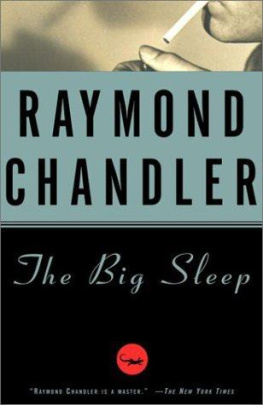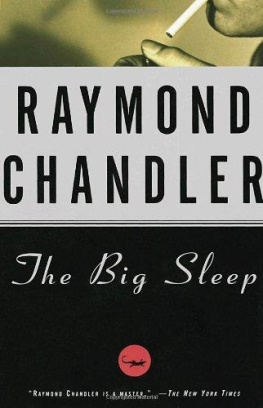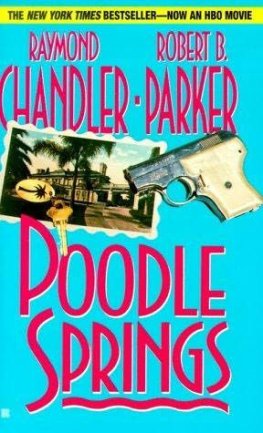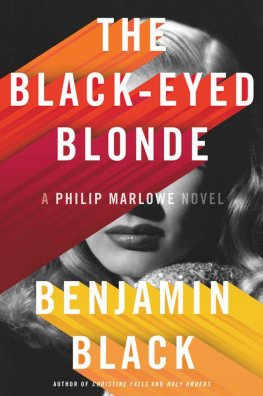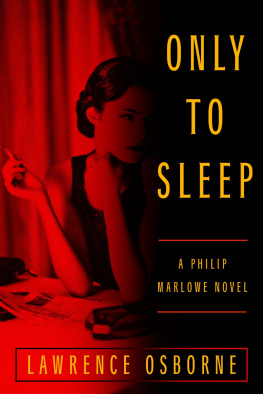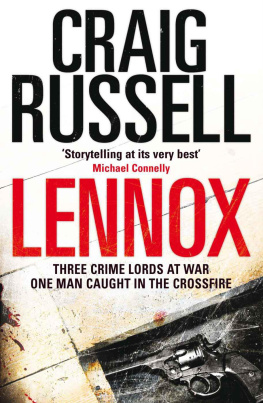
Raymond Chandler
The Long Goodbye
The first time I laid eyes on Terry Lennox he was drunk in a Rolls-Royce Silver Wraith outside the terrace of The Dancers. The parking lot attendant had brought the car out and he was still holding the door open because Terry Lennox's left foot was still dangling outside, as if he had forgotten he had one. He had a young-looking face but his hair was bone white. You could tell by his eyes that he was plastered to the hairline, but otherwise he looked like any other nice young guy in a dinner jacket who had been spending too much money in a joint that exists for that purpose and for no other.
There was a girl beside him. Her hair was a lovely shade of dark red and she had a distant smile on her lips and over her shoulders she had a blue mink that almost made the Rolls-Royce look like just another automobile. It didn't quite. Nothing can.
The attendant was the usual half-tough character in a white coat with the name of the restaurant stitched across the front of it in red. He was getting fed up.
"Look, mister," he said with an edge to his voice, "would you mind a whole lot pulling your leg into the car so I can kind of shut the door? Or should I open it all the way so you can fall out?"
The girl gave him a look which ought to have stuck at least four inches out of his back. It didn't bother him enough to give him the shakes. At The Dancers they get the sort of people that disillusion you about what a lot of golfing money can do for the personality.
A low-swung foreign speedster with no top drifted into the parking lot and a man got out of it and used the dash lighter on a long cigarette. He was wearing a pullover check shirt, yellow slacks, and riding boots. He strolled off trailing douds of incense, not even bothering to look towards the Rolls-Royce. He probably thought it was corny. At the foot of the steps up to the terrace he paused to stick a monode in his eye.
The girl said with a nice burst of charm: "I have a wonderful idea, darling. Why don't we just take a cab to your place and get your convertible out? It's such a wonderful night for a run up the coast to Montecito. I know some people there who are throwing a dance around the pool."
The white-haired lad said politely: "Awfully sorry, but I don't have it any more. I was compelled to sell it." From his voice and articulation you wouldn't have known he had had anything stronger than orange juice to drink.
"Sold it, darling? How do you mean?" She slid away from him along the seat but her voice slid away a lot farther than that.
"I mean I had to," he said. "For eating money."
"Oh, I see." A slice of spumoni wouldn't have melted on her now.
The attendant had the white-haired boy right where he could reach him-in a low-income bracket. "Look, buster," he said, "I've got to put a car away. See you some more some other time-maybe."
He let the door swing open. The drunk promptly slid off the seat and landed on the blacktop on the seat of his pants. So I went over and dropped my nickel. I guess it's always a mistake to interfere with a drunk. Even if he knows and likes you he is always liable to haul off and poke you in the teeth. I got him under the arms and got him up on his feet.
"Thank you so very much," he said politely.
The girl slid under the wheel. "He gets so goddam English when he's loaded," she said in a stainless-steel voice. "Thanks for catching him."
"I'll get him in the back of the car," I said.
"I'm terribly sorry. I'm late for an engagement." She let the clutch in and the Rolls started to glide. "He's just a lost dog," she added with a cool smile. "Perhaps you can find a home for him. He's housebroken-more or less."
And the Rolls ticked down the entrance driveway onto Sunset Boulevard, made a right turn, and was gone. I was looking after her when the attendant came back. And I was still holding the man up and he was now sound asleep.
"Well, that's one way of doing it," I told the white Wat.
"Sure,"-he said cynically. "Why waste it on a lush? Them curves and all."
"You know him?"
"I heard the dame call him Terry. Otherwise I don't know him from a cow's caboose. But I only been here two weeks."
"Get my car, will you?" I gave him the ticket.
By the time he brought my Olds over I felt as if I was holding up a sack of lead. The white coat helped me get him into the front seat. The customer opened an eye and thanked us andwent to sleep again.
"He's the politest drunk I ever met," I said to the white coat.
"They come all sizes and shapes and all kinds of manners," he said. "And they're all bums. Looks like this one had a plastic job one time."
"Yeah." I gave him a dollar and he thanked me. He was right about the plastic job. The right side of my new friend's face was frozen and whitish and seamed with thin fine scars. The skin had a glossy look along the scars. A plastic job and a pretty drastic one.
"Whatcha aim to do with him?"
"Take him home and sober him up enough to tell me where he lives."
The white coat grinned at me. "Okay, sucker. If it was me, I'd just drop him in the gutter and keep going. Them booze hounds just make a man a lot of trouble for no fun. I got a philosophy about them things. The way the competition is nowadays a guy has to save his strength to protect hisself in the clinches."
"I can see you've made a big success out of it," I said. He looked puzzled and then he started to get mad, but by that time I was in the car and moving.
He was partly right of course. Terry Lennox made me plenty of trouble. But after all that's my line of work.
I was living that year in a house on Yucca Avenue in the Laurel Canyon district. It was a small hillside house on a dead-end street with a long flight of redwood steps to the front door and a grove of eucalyptus trees across the way. It was furnished, and it belonged to a woman who had gone to Idaho to live with her widowed daughter for a while. The rent was low, partly because the owner wanted to be able to come back on short notice, and partly because of the steps. She was getting too old to face them every time she came home.
I got the drunk up them somehow. He was eager to help but his legs were rubber and he kept falling asleep in the middle of an apologetic sentence. I got the door unlocked and dragged him inside and spread him on the lng couch, threw a rug over him and let him go back to sleep, He snored like a grampus for an hour. Then he came awake all of a sudden and wanted to go to the bathroom. When he came back he looked at me peeringly, squinting his eyes, and wanted to know where the hell he was. I told him. He said his name was Terry Lennox and that he lived in an apartment in Westwood and no one -was waiting up for him. His voice was dear and unslurred.
He said he could handle a cup of black coffee. When I brought it he sipped it carefully holding the saucer close under the cup.
"How come I'm here?" he asked, looking around.
"You squiffed out at The Dancers in a Rolls. Your girl friend ditched you."
"Quite," he said. "No doubt shewas entirely justified."
"You English?"
"I've lived there. I wasn't born there. If I might call a taxi, I'll take myself off."
"You've got one waiting."
He made the steps on his own going down. He didn't say much on the way to Westwood, except that it was very kind of me and he was sorry to be such a nuisance. He had probably said it so often and to so many people that it was automatic.
His apartment was small and stuffy and impersonal. He might have moved in that afternoon. On a coffee table in front of a hard green davenport there was a half empty Scotch bottle and melted ice in a bowl and three -empty fizzwater bottles and two glasses and a glass ash tray loaded with stubs with and without lipstick. There wasn't a photograph or a personal artide of any kind in the place. It might have been a hotel room rented for a meeting or a farewell, for a few drinks and a talk, for a roll in the hay. It didn't look like a place where anyone lived.
Next page

